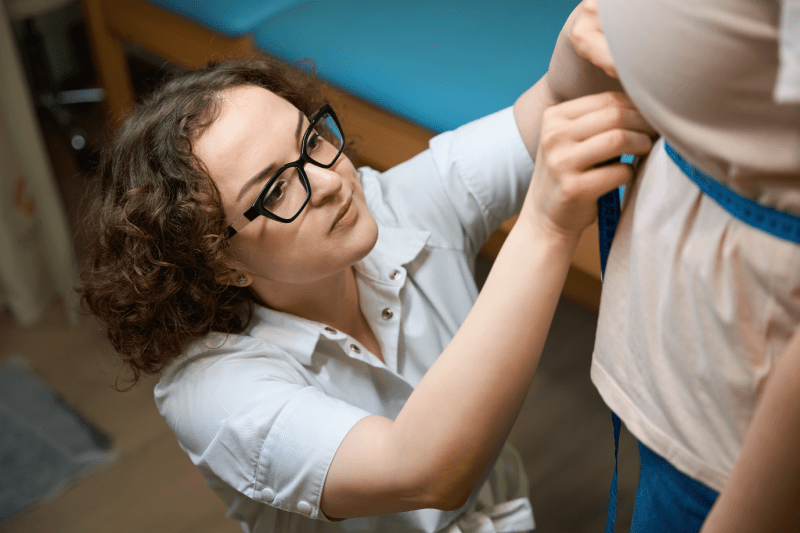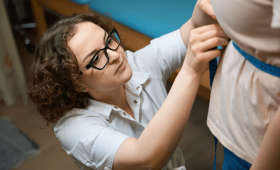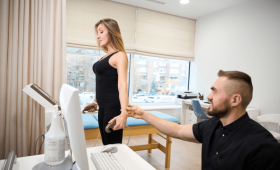What Steps Should Be Taken To Get Height Reduction Surgery In The UK?
If you are considering height reduction surgery in the UK, the first step usually begins with a General Practitioner (GP) visit, although contacting a private orthopedic or extremity surgery clinic directly is the fastest route since this is an aesthetic procedure. Your GP will most likely not refer you under the National Health Service (NHS).
Private clinics initiate a comprehensive evaluation process; this includes psychological counselling, detailed physical examinations, and analysis of your bone structure. These assessments determine not only your suitability for surgery but also the realism of the expected outcome. As Cure Holiday, we guide you in taking these initial steps and directing you to the right specialists.
Does The NHS Cover This Surgery Or Is It Done Privately?
Since height reduction surgery is generally requested for cosmetic or aesthetic concerns, it is not funded by the National Health Service (NHS) in the United Kingdom (UK). The NHS only covers such surgical procedures in cases of medical necessity, such as significant limb length discrepancies arising from severe trauma. Therefore, almost all patients must have the surgery done in the private healthcare sector. While private clinics offer high standards of service, the costs are considerably high. Cure Holiday offers an effective alternative to the high costs and long private waiting lists in the UK, thus simplifying your treatment process.
What Is The Cost Of Height Reduction Surgery In A Private Clinic In The UK?
The cost of height reduction surgery in private clinics in the UK is quite high and can vary widely depending on the bone to be shortened, the surgeon’s experience, and the length of the hospital stay. Prices generally range between £40,000 and £80,000, and this cost may not include additional expenses such as physiotherapy, implant removal surgery, and complication management. Due to these high costs, many British patients prefer medical tourism to receive the same quality service at more affordable prices through Cure Holiday in internationally accredited hospitals.
What Are The Waiting Times For Height Reduction Surgery In The UK?
Since height reduction surgery is an aesthetic procedure, it is not placed on NHS waiting lists. In private clinics, waiting times vary according to the surgeon’s popularity and the clinic’s workload. While the pre-assessment and planning process can take several months, scheduling the surgery can also be delayed from 6 months up to a year during busy periods. These long waiting times in the UK can be a deterrent, especially for international patients who wish to receive treatment quickly and systematically. Cure Holiday minimizes waiting times at its contracted centers abroad, offering you rapid appointment scheduling.
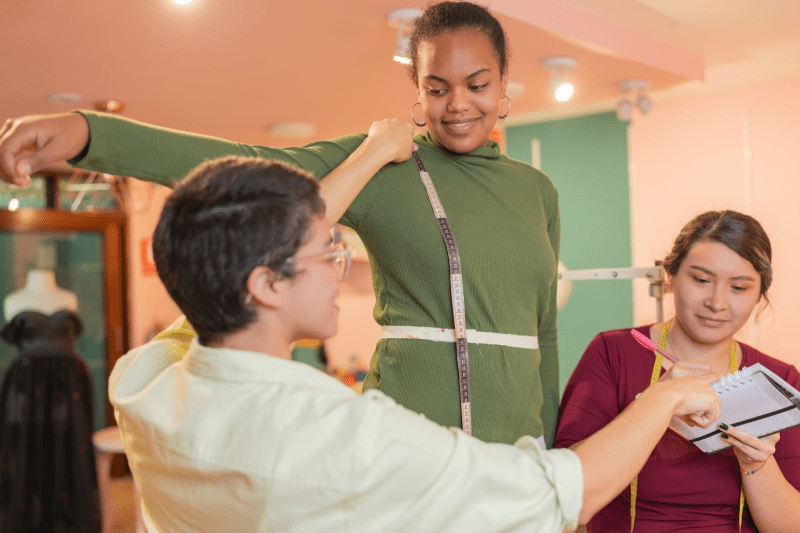
How Should A Surgeon Be Found For Height Reduction Surgery In The UK?
When selecting a surgeon for height reduction surgery in the UK, attention should be paid to the surgeon’s specialization in Orthopaedics and Traumatology and particularly their extensive experience in Limb Reconstruction or limb lengthening/shortening surgery. It is important to review the surgeon’s past cases, read patient testimonials, and check their membership in professional organizations (e.g., the British Orthopaedic Association). Cure Holiday ensures you work with highly qualified surgeons who deliver the best outcomes in this rare and specialized field on an international level.
How Are Pre-Operative Assessments Carried Out In The UK?
Pre-operative assessments in the UK typically involve a comprehensive health check organized by private clinics. This process requires routine medical tests such as blood tests, ECG, and chest X-rays to determine suitability for general anaesthesia, as well as specialized Scanogram or Orthopaedic Radiography to measure the leg bones with millimetric precision. Furthermore, a consultation with a psychologist or psychiatrist to understand the psychological effects of the surgery is also a standard procedure. Cure Holiday coordinates the rapid and complete finalization of this assessment process at centers abroad.
Do British Insurance Companies Cover Aesthetic Height Shortening?
No, most British private health insurance companies do not cover height reduction surgeries sought for aesthetic or cosmetic purposes. Insurance coverage generally only extends to medical necessities aimed at correcting significant leg length discrepancies arising from congenital differences, severe diseases, or accidents. Patients hoping to cover the cost of the surgery with insurance are often disappointed and have to pay the cost out of pocket. Cure Holiday offers international solutions for patients who wish to avoid this high financial burden.
What Are The Advantages Of Going Abroad For Medical Tourism From The UK?
The main advantages of going abroad for height reduction surgery from the UK are cost-effectiveness and shorter waiting times. It is possible to receive the same or better quality service in internationally accredited facilities for much less than the private prices in the UK. Additionally, appointment and treatment processes abroad can be organized faster, meaning patients do not have to wait for months. Cure Holiday prioritizes the comfort of British patients, managing the entire process from A to Z, including flights, accommodation, translation, and post-operative care coordination.
Can I Have My Post-Operative Check-Ups Done In The UK?
Yes, you can have a large portion of your routine post-operative check-ups and physiotherapy done by a GP or private clinic in the UK after returning to your country. The international surgical team performing the operation will provide detailed medical reports, follow-up charts, and imaging instructions to facilitate information sharing with your doctor in the UK. However, for a secondary surgical procedure like implant removal, it is generally recommended to return to your original surgeon. Cure Holiday provides full support in coordinating this international follow-up process.
How Many Days Is The Hospital Stay After Surgery In UK Hospitals?
The duration of hospital stay after height reduction surgery in private hospitals in the UK is determined based on standard procedures and the patient’s general condition. Generally, patients stay in the hospital for 3 to 7 days for close monitoring and initial pain management. During this time, the patient begins mobilization and the first physical therapy sessions are conducted. Patients are discharged when their condition is stable, but they are advised to stay in nearby accommodation to continue intensive physical therapy in the post-discharge phase.
Why Is Pre-Operative Psychological Evaluation Important In The UK?
Pre-operative psychological evaluation is vitally important because height reduction surgery in the UK requires a serious physical and emotional investment. Surgeons want to ensure that the patient’s expectations are realistic, that there are no underlying psychological issues like Body Dysmorphic Disorder (BDD), and that they are mentally prepared for the long, demanding recovery process. This evaluation is performed to maximize patient satisfaction after the surgery and minimize potential disappointments.
How Can I Organize Intensive Physiotherapy After Surgery In The UK?
Intensive physical therapy after surgery is the key to a successful recovery. In the UK, you must organize this treatment through private physiotherapy clinics or specialized rehabilitation centres, as the NHS generally does not cover this intensive program. Treatment costs and session frequency will be determined according to the instructions of your international surgeon who performed the operation. Cure Holiday can assist you in finding the most suitable physiotherapists and treatment plan, so you can continue the process seamlessly upon your return home.
Is It Safe To Come Alone For The Surgery In The UK?
Physical support and companionship are essential during the post-operative recovery period of height reduction surgery, especially in the first few weeks. Staying alone in the UK means you may struggle to meet your daily needs. Therefore, coming with a companion is highly recommended. If this is not possible, Cure Holiday ensures your safety by organizing a support package that includes airport pickup, hospital transfer, private caregiver/nursing support after discharge, and suitable accommodation services.
What Are The Long-Term Effects And Success Rates Of The Surgery In The UK?
The long-term success rates of height reduction surgeries performed by experienced surgeons in the UK are high, but this depends on the patient’s adherence to physiotherapy and post-operative protocols. A successful operation not only shortens the height but also improves the patient’s quality of life by correcting body proportions. No long-term functional limitation is expected. UK doctors work diligently to minimize rare complications.
Which Airports Should I Use For Height Reduction Surgery From The UK?
When departing from the UK for international medical tourism, large international airports such as Heathrow (LHR), Gatwick (LGW), Manchester (MAN), or Stansted (STN) are typically used. If you are having your surgery at an international centre, Cure Holiday will help you find the most suitable and comfortable flight routes. Flight planning should be done considering your comfort and safety, especially for the return journey after surgery.
Are There Financing Options In The UK To Reduce The Cost Of Surgery?
Many private clinics in the UK offer installment payment plans or private medical loan options to their patients. These financing options can help divide the high costs into more manageable installments. However, the interest rates and total cost of these loans should be calculated carefully. Cure Holiday offers a strong economic alternative, eliminating the need for these interest-bearing loans in the UK with more affordable, transparent, and all-inclusive packages abroad.
Is The Flying Time After Surgery Specific To British Patients?
The time frame for flying after surgery is based on internationally accepted medical protocols and is no different for British patients. Due to the risk of blood clots (DVT), surgeons generally advise avoiding long flights for the first 2-3 weeks after the surgery. Our international team performing the operation will plan your blood-thinning medication and leg movements before granting travel permission. Cure Holiday arranges safe and comfortable travel specific to your needs.

Are Medically Necessary Surgeries Covered By The NHS In The UK?
Yes, if height reduction surgery is performed due to a medical necessity, such as correcting Limb Length Discrepancy (LLD) or a severe skeletal deformity, these conditions can be covered by the NHS to a limited extent. However, requests for cosmetic shortening are definitively rejected. Even for medical indications, the NHS has long waiting lists and limited surgeon choice. Cure Holiday offers faster access and the option to choose a specialist, even for medical necessities.
How Is Translator Support Provided For Patients In The UK?
For patients travelling from the UK to international healthcare centres, Cure Holiday provides professional English-Turkish and other necessary language translation support. This service covers communication with doctors and staff not only within the hospital but also during airport transfers and accommodation processes. Translator support is a compulsory service to ensure that patients correctly understand medical information and feel safe throughout the entire process.
What Should I Do About Possible Complications After Returning To The UK?
If you experience any complications (such as signs of infection, severe pain) after returning to the UK, the first step is to contact your local GP or the emergency service (NHS 111). At the same time, you should immediately contact the international surgical team who performed your operation and Cure Holiday. Our team will swiftly forward your medical reports to local British doctors, providing remote consultation and guidance to support prompt intervention.
How Is Smoking And Alcohol Use Monitored Before Surgery In The UK?
Both private and international clinics in the UK mandate the cessation of smoking and reduction of alcohol consumption at least 4-6 weeks before surgery due to the negative effects of smoking and alcohol on bone healing. Private clinics may monitor your smoking status through pre-operative blood tests. Cure Holiday clearly informs patients that this rule must be strictly enforced for a successful outcome and offers suggestions to support this process. Otherwise, there is a risk that your surgery may be postponed.
How Long Do Swelling And Bruising In The Legs Last After Surgery?
Swelling (oedema) and bruising in the legs after surgery are a normal result of the surgical intervention and are the same for British patients. Swelling usually peaks within the first few weeks and then slowly subsides, but complete disappearance may take several months. Bruising usually fades within the first month. To reduce swelling, it is important to elevate the legs and perform the movements recommended by the physiotherapist.
What Are The Aesthetic Outcome Expectations After Height Reduction Surgery?
Aesthetic outcome expectations should be realistic and proportional. British patients generally aim not only to shorten their height but also to improve the proportion between their upper and lower bodies. The surgeon will show you the kind of proportion to be achieved during pre-operative planning. A successful result should reflect a natural balance that makes you feel physically and psychologically more comfortable.
How Should Accommodation And Recovery Environment Be For Patients In The UK?
Patients from the UK require fully equipped, comfortable accommodation close to physiotherapy and the hospital for post-hospital recovery in international centers. Accommodation should be easily accessible, with elevators and spacious bathrooms, considering potential mobility difficulties. Cure Holiday supports your recovery process by organizing apartments or private suites suitable for long-term stays, with the comfort of home, to meet these specific needs.
Does Height Reduction Surgery Have A Long-Term Impact On The Ability To Play Sports?
After successful healing and complete bone fusion, patients who have undergone height reduction surgery are not expected to have permanent restrictions on their ability to play sports. However, the return to high-impact sports (running, jumping) occurs gradually, with the surgeon’s permission and generally 9 to 12 months after the surgery. Physical therapy plays a critical role in regaining old strength and flexibility. With proper rehabilitation, patients can safely return to their sports lives.
How Is Safe Transfer Provided From The UK For Shortening Surgery?
Transfers from the UK to the international surgical centre and back are carefully organized by Cure Holiday, considering patient safety and comfort. This process includes airport pickup and transfers by private vehicles. In the post-operative period, special vehicles are provided for airport transfers so that the patient can be comfortable and position their legs appropriately. All transfers are coordinated by a representative or translator who will accompany you throughout the process.
Can Metal Implants Be Removed In The UK After Surgery?
The removal of metal implants (plates and screws) used in height reduction surgery is usually done with a second, smaller operation and is required approximately 12-18 months after the surgery. Technically, this operation can be performed by a local surgeon in the UK; however, most surgeons may be reluctant to perform such revision procedures unless they performed the initial surgery themselves. For this reason, most patients prefer to return to their original surgeon for the implant removal procedure. Cure Holiday plans this return seamlessly.
How Will Medication And Supplies Be Procured After I Return To The UK?
Medications and medical supplies you will need upon your return to the UK, such as painkillers, blood thinners, and wound care materials, will be documented with a detailed prescription and report by the international team performing the surgery. These prescriptions and reports can be obtained in the UK through your local GP or private pharmacies. Cure Holiday includes all necessary details to ensure that your discharge documents are easily understood by the British medical system.
What Are The UK Solutions To Reduce The Appearance Of Scars After Surgery?
Various solutions are available in the UK to reduce the appearance of scars after surgery, such as Silicone Gel Strips, specialized scar creams, and dermatological laser treatments. British dermatologists may recommend treatments such as fractional laser or microneedling once wound healing has stabilized (usually 6-12 months). Cure Holiday can recommend reliable specialists in the UK for such cosmetic recovery processes after your international surgery.
Does The Surgery Have A Long-Term Effect On Body Balance And Posture?
A successful height reduction surgery can positively affect the patient’s posture and walking balance because it corrects the proportion between the upper and lower parts of the body. The feeling of disproportion and some postural defects caused by excessively long legs can be corrected. However, this positive effect must be supported by intensive physiotherapy and muscle adaptation after the surgery. The improvement in your posture also contributes to you feeling psychologically more stable and self-assured.
What Is The Biggest Concern For British Patients Regarding Height Reduction Surgery?
The biggest concerns for British patients regarding height reduction surgery are the high cost and the fact that it is not covered by the NHS. Additionally, difficulty finding sufficient local expertise due to the rarity of the surgery and the length of the recovery process are also significant concerns. Cure Holiday addresses these concerns by guaranteeing international quality and support against the high costs and waiting times in the UK.
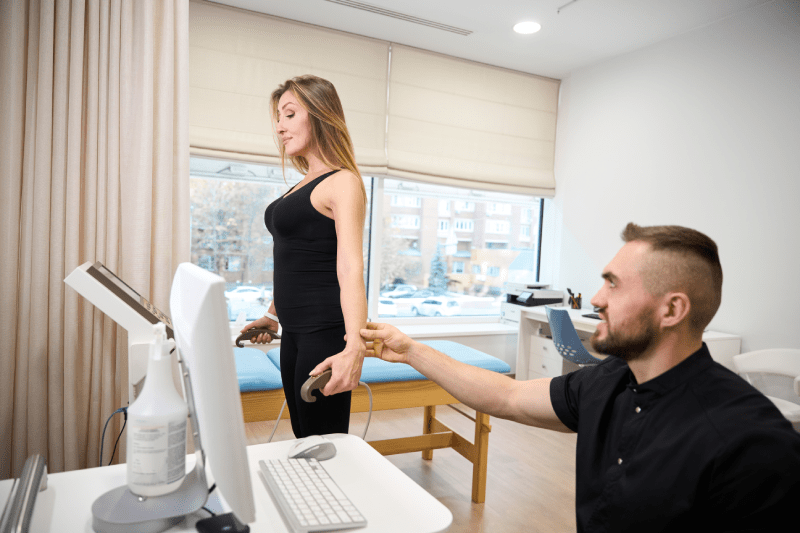
How Does Cure Holiday Make A Difference For British Patients?
Cure Holiday makes a difference for British patients not only in terms of cost advantage but also in speed, specialist selection, and comprehensive support. Instead of private clinics in the UK, we ensure you work with expert surgeons in internationally accredited centers. Our process management covers all details, from the initial consultation, travel and accommodation, in-hospital translation services, to remote follow-up coordination when you return home. This way, you can focus solely on your recovery.
Can Nutrition Counselling Be Received In The UK Before And After The Surgery?
Yes, nutrition counselling necessary for optimal bone healing before and after the surgery can be obtained from private dieticians in the UK. The international team performing the surgery will also provide you with a specific nutrition plan. This plan will focus particularly on protein, calcium, and Vitamin D supplements. Cure Holiday can also recommend international experts from whom you can seek such counselling services before the surgery.
What Is The Recovery Time For Returning To Sexual Life After Height Reduction Surgery?
Returning to sexual life after height reduction surgery depends on personal comfort and the status of wound healing. Generally, the first 2 to 4 weeks are a delicate period for the surgical incisions to heal and initial pain to subside, and caution should be exercised during this time. A full return to functional activity is only possible after the surgeon’s full weight-bearing permission. The important thing is to avoid pressure on the surgical area and listen to your body’s signals.
What Is The First Step For Patients In The UK To Apply To Cure Holiday?
The first step for a patient in the UK to contact Cure Holiday is to fill out a consultation request form on our website or contact us directly via our communication lines. Our team will contact you in English and gather information about your current situation, expectations, and medical history. Subsequently, we will guide you on how to provide the necessary medical imaging (X-rays, photos) and reports for a pre-assessment. We are ready to guide you on your surgical journey.
